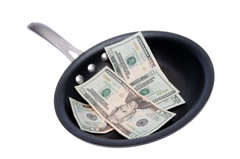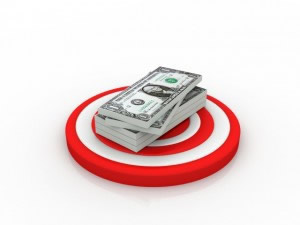Learn how to get your federal income tax refund fast
Published 3/14/11 (Modified 3/29/11)  By Jim Sloan
By Jim Sloan
I drove by one of those sign wavers dressed up as the Statue of Liberty this morning. Maybe you've seen one or two of them in your town. They wear green costumes and direct people to the offices of their employer, Liberty Tax Service, which prepares tax returns for people.
Weird thing was this particular sign waver had a beard. The Statue of Liberty endures some pretty harsh conditions there in New York Harbor, but last time I checked things weren't so bad that the towering lady had grown a beard.
Other changes expected in your federal income tax return
There are some other things about this federal income tax season that are off kilter, as well. For one thing, outfits like Liberty Tax Service and other businesses that figure out your tax deductions for you are not likely to be making as many refund anticipation loans as they used to.
Those loans are attractive to many people who can't afford to pay to have someone prepare their return. With a refund anticipation loan (RAL), though, they can have their return completed and e-filed and the company will give them a check right away--minus the "processing fee" and the tax preparation fee.
The tax preparation companies' RAL business has been handicapped this year by the IRS's decision to stop providing tax preparers with "debt indicators," which let the companies know when their client's refund might be withheld for
Read the full article » By Kelly Richardson
By Kelly Richardson  By Richard Barrington
By Richard Barrington  By Jim Sloan
By Jim Sloan  By Richard Barrington
By Richard Barrington  By Sierra Black
By Sierra Black